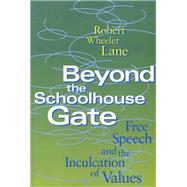Beyond the Schoolhouse Gate
, by Lane, Robert Wheeler- ISBN: 9781566392754 | 1566392756
- Cover: Paperback
- Copyright: 2/1/1995
>p>In a 1969 landmark case, the U.S. Supreme Court ruled that the suspension of student for protesting the Vietnam War violated the First Amendment.In 1972, the U.S. court of appeals upheld the suspension of black high school students for protesting the playing of "Dixie" at a pep rally.In 1986, a U.S. district court ruled that the suspension of a student for directing a vulgar gesture at one of his school teachers in a fast-food restaurant was unconstitutional.>p>On what grounds do public school students merit First Amendment protection? These three examples illustrate the broad range of litigation that has attempted to answer this question. Robert Wheeler Lane reviews the obstacles of this important issue and suggests a mix of protection and autonomy for students.Pulling together evidence about the aims of public education, the changing legal status of children, and the values underlying freedom of expression, Lane debates the relationship between constitutional litigation and the dual pursuits of academic excellence and classroom order. Ultimately, utilizing both lower court and Supreme Court decisions, he finds that independent student expression deserves considerable constitutional protection; student expression assisted by school officials (such as school-funded student newspapers) should be subject to some control; and nonstudent expression (such as a school's selection of library books) should be left largely to the school's discretion. His conclusions suggest that in forging First Amendment protection for public school students, strongly held positions need not be extreme. Author note: Robert Wheeler Lane is Assistant Professor, Department of Political Science, Saginaw Valley State University.






